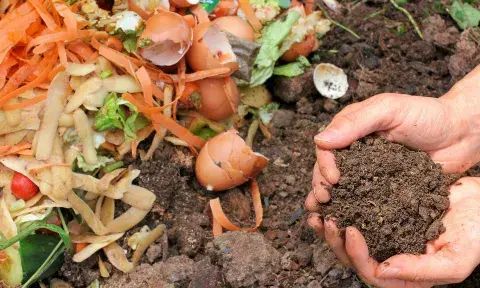
On August 10, New Hampshire Governor Chris Sununu signed HB 413 into law. The law (1) establishes a solid waste working group on solid waste management planning; (2) requires the NH Department of Environmental Services (NHDES) to make certain rules regarding composting meat and dairy products; and (3) establishes a statewide solid waste disposal reduction goal. This bill was developed from the findings of the HB 617 Recycling & Solid Waste Study Committee led by Rep. Karen Ebel, which held hearings and produced an extensive report in the fall of 2019. NRRA was actively involved with the Committee's work and will have a representative on the solid waste working group.
In addition, the NH Municipal Association is seeking two municipal volunteers to serve on the solid waste working group: one representing communities with single stream recycling and one representing rural communities using source separated recycling. Learn more by contacting governmentaffairs@nhmunicipal.org.
Solid Waste Working Group
The solid waste working group is being established to assist NHDES with planning for New Hampshire's solid waste future. The solid waste working group's responsibilities include the following:
- Assist NHDES in long-range planning for and the development of solutions to the state’s solid waste management challenges.
- Review and make recommendations for changes to the state’s existing solid waste reduction, recycling, and management policies, programs, goals, and initiatives.
- Review and make recommendations regarding the impact of regional solid waste management initiatives, including landfill waste disposal bans, on New Hampshire's solid waste disposal landfill capacity.
- Advise NHDES in the development of the solid waste management plan.
- Review and recommend methods to better provide technical assistance and educational outreach to municipalities, schools, businesses, and the public regarding solid waste reduction, recycling, and management policies.
- Review and recommend ways to better implement the solid waste hierarchy and solid waste reduction goals.
- Review and make recommendations based on the HB 617 study committee report on recycling and solid waste management in New Hampshire.
- Review such other matters as the working group deems necessary and to recommend any related legislation, policy, or rule changes.
The working group will hold its first meeting no later than November 1, 2021. The working group will submit an initial report on November 30, 2022 and a final report on November 1, 2026.
Compost Rules
The NHDES Commissioner must enact rules by September 30, 2021 relative to requirements and best practices for facilities that compost organics, including vegetable matter, meat, meat byproducts, dairy products, and dairy product derivatives. A similar law requiring such rule updates was passed in 2015, though it did not include a deadline for the rules to be updated. Currently, in order for a solid waste facility to compost meat and dairy products in New Hampshire, it must undergo an extensive and expensive permit process. Until the composting regulations have been revised, NHDES has made pathways available to compost meat and dairy that involve requesting that NHDES waive certain current regulations. Learn more about current food scrap composting regulations in New Hampshire.
Solid Waste Disposal Reduction Goal
The new solid waste disposal reduction goal is to reduce the quantity by weight of solid waste disposed by 25% by the year 2030, and by 45% by the year 2050. Disposal reduction may be achieved through source reduction as well as diversion including but not limited to reuse, recycling, and composting. The law replaces a prior waste reduction goal of 40% diversion by the year 2000, which NHDES was not able to accurately measure due to the way the goal was written.
The goal applies to municipal solid waste and construction and demolition debris as measured against baseline quantities of these wastes disposed of in the year 2018. For purposes of the goal, municipal solid waste means solid waste generated at residences, commercial or industrial establishments, and institutions, but excludes automobile scrap and other motor vehicle waste, infectious waste, asbestos waste, contaminated soil and other absorbent media, sludge, industrial process waste, and ash other than ash from household stoves.
Beginning October 1, 2022, and every 10 years thereafter, NHDES must update the state's solid waste plan. It was previously required to be updated every six years. The law adds the following minimum required elements for the plan:
(a) Goals, strategies, and actions to reduce solid waste generation through source reduction, to increase diversion through methods such as reuse, recycling and composting, and to achieve the state’s solid waste disposal reduction goal.
(b) Discussion of opportunities to reduce solid waste generation through source reduction and increase diversion through methods such as recycling and composting.
(c) Goals, strategies, and actions necessary to maintain and ensure adequate disposal capacity for management of waste generated in New Hampshire.
See the full text of HB 413 for more information. For questions about this bill, contact NRRA Executive Director, Reagan Bissonnette.
